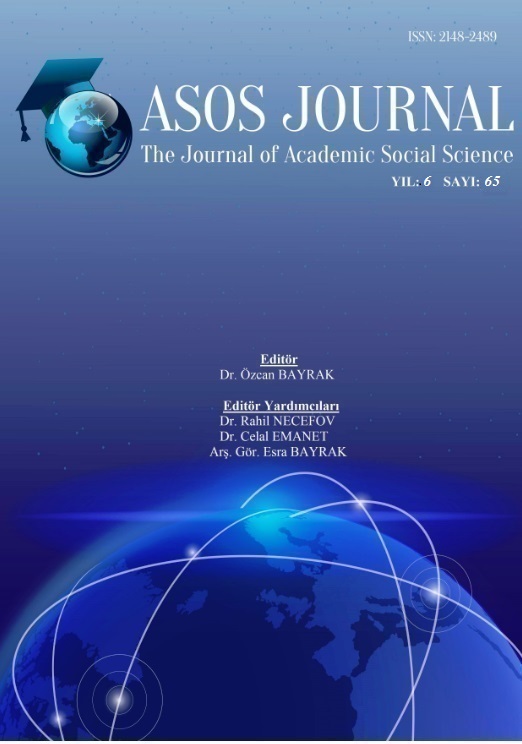ERNEST HEMINGWAY'IN SILAHLARA VEDA ADLI ESERİNDEKİ DOLAYLI SÖZ EDİMLERİNİN VE HITAP TERİMLERİNİN NEZAKET TEORİSİ ÇERÇEVESİNDE ÇEVRİLME SÜREÇLERİ
Author :
Abstract
Bu çalışma nezaket teorisini hitap terimlerinin ve dolaylı söz edimlerinin çevirisi kapsamında incelemektedir. Dilbilimsel nezaket Leech, Brown ve Levinson tarafından geliştirilerek ortaya atılan bir kavramdır. Sosyal psikoloji, sosyal antropoloji, toplumsal dilbilim, kültürler arası çalışmalar, dilbilimsel pragmatik ve çeviri çalışmaları gibi pek çok farklı alanda son zamanlarda yaygın bir şekilde kullanılmaya başlanan bir kavram olmuştur. Bu çalışmanın amacı Ernest Hemingway'in Silahlara Veda adlı eserinden alınan örnek hitap terimlerini, dolaylı söz edimlerini ve çeşitli cümleleri olumlu nezaket stratejileri ve olumsuz nezaket stratejileri olarak iki gruba ayrılan dilbilimsel nezaket teorisini tartışmanın merkezine alarak incelemektir. Her kültürün kendine has bir sosyal yapısı vardır ve bu durum edebiyat dahil bütün alanları etkilemektedir. Bu bağlamda, her edebiyat çalışması kendisini belirli bir vizyon çerçevesinde sunar ve esere katılacak olan nezaket miktarının kararı yazara aittir. Bu gerçek çeviri sürecini çok önemli kılmaktadır çünkü bu süreç içerisinde yazar kendi yorum ve değerlendirmesini katarak niyetlenen gerçek anlamı aktarabilmek adına kültürel bir filtreleme uygular. Bu sebeple, çeviri süreçlerinin çevrilen metin üzerinde değiştirici ve anlam kaydırıcı bir etkisinin olup olmadığı, ve orijinal yazarın kaynak metinde kullandığı hitap terimlerini ya da dolaylı söz edimlerini çevirmenin hangi hitap terimleri ve dolaylı söz edimleriyle aktarmayı tercih ettiği sorusu bu çalışmanın içerisinde cevaplandırılması hedeflenen başlıca sorudur. Bu gaye doğrultusunda, söz konusu eserin çevirmen Mehmet Baltacı tarafından çevrilmiş versiyonu özellikle Peter Newmark’ın çeviri ilkeleri göz önünde bulundurularak incelenmektedir.
Keywords
Abstract
This study aims to analyze politeness theory in the translation of address terms and indirect speech acts. Linguistic politeness is a concept developed by Leech(1983), Brown and Levinson(1987) and it has started to be more commonly used in many academic fields such as social psychology, social anthropology, sociolinguistics, cross-cultural studies, linguistic pragmatics and translation studies. The goal in this study is to study some example address terms and indirect questions and sentences from Ernest Hemingway’s ‘A Farewell to Arms’ by taking the linguistic politeness, which has two categories like positive politeness strategies and negative politeness strategies, into the core of discussion. Every culture has a distinctive social structure and it affects all areas including literature. In this sense, every piece of literary work presents itself from a certain vision and it is the author who decides on the degree of politeness to be added into the novel. This fact makes the process of translation crucial in that it may reflect the interpretation and evaluation of the translator, who sometimes practices a cultural filter while struggling to be able to transfer the intended meaning. Therefore, the question whether the process of translation has a changing or deviating effect on the politeness level of the address terms or indirect speech acts that the author intends to choose and uses in the novel is to be replied in this study. To accomplish this goal, the translation of the novel by Mehmet Harmancı is studied in terms of some translation procedures especially those of Peter Newmark.





